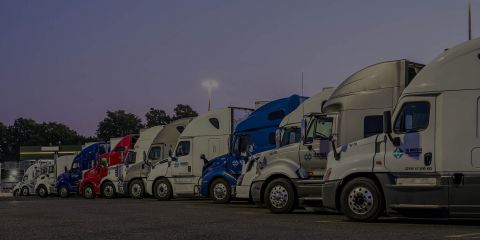2024
Sustainable Practices in Vancouver's Warehousing Industry and Their Community Benefits

Warehousing forms a crucial part of any supply chain but also demands significant power and resources. Efficiently running vast storage spaces calls for large-scale lighting, heating, cooling, and logistics—all of which contribute to a substantial environmental footprint.
Yet, with climate change becoming an urgent issue, Vancouver’s warehousing industry is doing what it can to shift towards sustainable practices. The goal of this transition is to benefit our city, and the communities within it as well.
Modern Sustainable Practices in Vancouver’s Warehouse Industry
Shifting towards sustainability is all about making changes to the equipment of warehouses.
One transformative practice is the use of energy-efficient lighting systems which offer longer lifespans and reduced energy consumption. Skylights and motion-sensor lights further decrease unnecessary usage, illuminating areas only when necessary.
Another vital sustainable practice is the integration of renewable energy sources. Instead of relying on the energy grid, many warehouses now utilize solar panels to generate their own natural power. This adoption goes hand-in-hand with advanced energy management systems that optimize electricity use, ensuring that no energy is squandered unnecessarily.
Material handling equipment is now being powered by electricity rather than fossil fuels, which substantially reduces greenhouse gas emissions compared to their diesel counterparts.
Community Benefits in Surrey, Burnaby, and Vancouver
Implementing these sustainable measures resonates well beyond warehouse walls, generating positive outcomes for local communities such as Surrey, Burnaby, and Vancouver.
For one, reducing emissions from warehouses directly translates into improved air quality—a critical health factor for densely populated urban areas. And having cleaner air helps alleviate respiratory issues among residents and reduces the overall healthcare burden.
Job creation is another major community benefit stemming from sustainability initiatives. Implementation of new green technologies often requires specialized expertise, fostering job opportunities across various sectors—be it skilled labor for installing solar panels or tech personnel managing sophisticated energy systems. Consequently, this economic boost spreads through the community by driving demand for local services and businesses.
Another benefit is that sustainable practices improve community relations by demonstrating corporate responsibility and environmental stewardship.
Don't Overlook The Benefits of Going Green
As Vancouver’s warehousing industry embraces sustainable practices, the benefits significantly extend beyond operational efficiencies to positively impact local communities.
Energy-efficient lighting, renewable energy sources, and electric material handling equipment are just a few examples of modern sustainability measures transforming warehouses.
These green initiatives not only curtail the environmental footprint but also contribute to better air quality, job creation, and stronger community relations in cities like Surrey, Burnaby, and Vancouver.
For companies looking to stay ahead of the curve and make a meaningful difference, adopting these practices showcases a model for responsible business operations that prioritize both profit and the planet.
Based in Vancouver, British Columbia, Canada, 18 Wheels relies on experience and integrity to make customers happy and remain on the cutting edge of shipping and logistics management.
If you have any questions about this article or you would like to talk to us about your shipping needs, please call us at (604) 439-8938.
